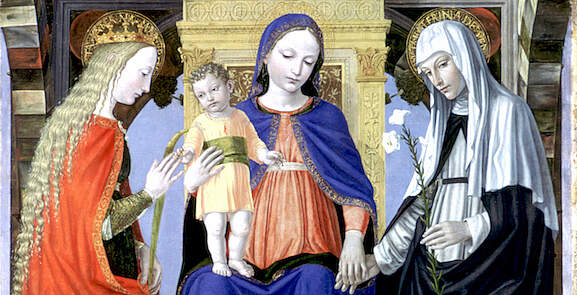
Fully aware of the intrinsic dignity of women, whom she recognizes as equal to men in the eyes of God, the Church has given rights to women often much higher than society at large. The Church also relied on them to spread the faith, from the origins of Christianity. Many women were among Christ’s first disciples, and they played an eminent role in the development of the first Christian communities, although different from that of the apostles of Jesus.
Contrary to a persistent legend, the medieval Church did not oppress women or teach that they were inferior to men. In the Middle Ages, women were equally represented among the great models of holiness. Far from being misogynist, the Church in the Middle Ages gave women a freedom they did not have before, and which they lost to a certain extent later on. The medieval Church sought in many ways to protect them, especially by promoting monogamous and indissoluble marriage.
During the Renaissance, the return to Roman law, which was unfavorable to women, tightened legal and religious provisions concerning them. The French Revolution did not change this fact, as women did not obtain any political existence. The Civil Code of 1804 reinforced the authority of the male head of the family, and his right to own property—to the detriment of the woman.
While women may have been relegated to a position of subordination, they have kept a special place in the Church, for example as founders of new forms of spirituality. The Church has constantly recalled the unique role of women in the biblical and Christian tradition. The modern popes have given a renewed consideration to the condition and vocation of women.
Aubrée David-Chapy
Associate History Professor and Lecturer in Modern History at Paris-IV Sorbonne University, specialized in the history of women